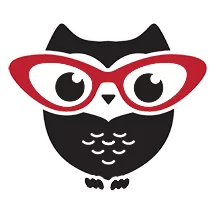It may seem like a simple answer, but there are actually more ways to say thank you in the Czech language. There are four basic words to which other words can be attached to add empathy and emphasis.
The four basic words for thank you are:
- děkuji
- děkuju
- díky
- dík
Děkuji
Děkuji is the most universal form of thank you in Czech. You can use it in formal situations as well as casual ones. It comes from the verb děkovat and it literally means I thank.
Děkuju
Děkuju is an altered form of děkuji. The -u at the end suggests it is a slightly more relaxed way of saying thank you. However, it is still widely acceptable in formal occasions and you can use it even with strangers to show them that you are friendly and open-minded.
Díky
Díky basially means thanks in English. It is a common way of thanking in Czech and you can use it in all kinds of situations. However, note it is more relaxed than previous two examples – it is always nice to hear friendly díky with a nice smile on one’s face.
Dík
Dík is a collloquial, rather extreme way of thanking in Czech. It should be used only among good friends and family members.

It is common to complement the basic thank you words with additional components. There are a few of them:
Děkuji moc
Adding the word moc emphasises the gratitude of your thanks. It means much / a lot. In English, you would say Thank you very much. or Thanks a lot. You can use it with any form of thank you such as:
- děkuji moc
- děkuju moc
- díky moc
- dík moc
Děkuji vám
The word vám means you when talking to someone formally (in a shop, on the street, at the doctor). Using vám is not mandatory but gives a nice emphasis to your thanks.
- děkuji vám
- děkuju vám
Děkuji ti
The word ti means you when talking to someone informally (friends and family members). The use of ti is not so frequent but can be used to add friendly emphasis to your thanks.
- děkuji ti
- děkuju ti

Moc vám/ti děkuji
You can combine the previous two together. It is a favourite option to use to thank someone sincerely without sounding overformal.
- moc vám děkuji
- moc ti děkuji
- moc vám děkuju
- moc ti děkuju
Velmi vám/ti děkuji
The word velmi means very and is is used rather formally (compared to moc). This is one of the most sophisticated ways how to thank someone in the Czech language. It is often used in writing such as at the end of an email.
- velmi vám děkuji
- velmi ti děkuji
- velmi vám děkuju
- velmi ti děkuju
Děkuji pěkně
The word pěkně means nicely. Adding it to the main word děkuji is another possible way to thank someone nicely. The use depends on personal preferences as someone may consider it too heart-warming.
- děkuji pěkně
- děkuji vám pěkně
- děkuji ti pěkně
- děkuju pěkně
- děkuju vám pěkně
- děkuju ti pěkně
Děkuji za + noun
If you want to give thanks for something, you need to use the preposition za. If you are thanking for a noun (gift, information, breakfast), you need to change the noun into the Accusative case.
- Děkuji vám za dárek.
- Díky moc za odpověď.
- Děkuju ti za pomoc.
- Děkuji moc za snídani.
Děkuji za to, že + verb
If you are thanking for an activity using a verb, you need to use the formation za to, že + verb in the desired tense (present, past, future). To replicate this into the English grammar, you are saying Thank you for the fact that…
- Děkuji za to, že jsi tady.Thank you for being here.
- Děkuji za to, že používáte Czech Time.Thank you for using Czech Time.
- Děkuji za to, že jsi uklidil pokoj.Thank you for cleaning the room.
- Děkuji za to, že uděláš dneska večeři.Thank you for making dinner tonight.
Possible replies – You’re welcome
There are many ways to say You’re welcome in Czech. By far the most common one is Není zač.
- Není zač.
- Za málo.
- Nemáte zač. / Nemáš zač.
- Rádo se stalo.
Article author: Tomáš Ptáčník
Featured Photo: Image by Freepik









